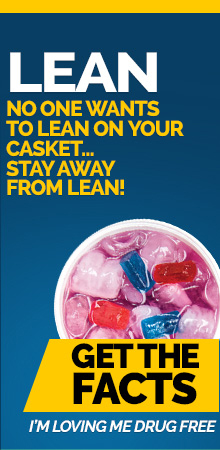Demand reduction can be considered as the Government's effort to curb the desire for the use of narcotic drugs and psychotropic substances. More specifically, noted in the National Anti-Drug Strategy 2002-2016, demand reduction encompasses action to prevent the first use of drugs, especially by children and youths, to prevent the transition from first use to chronic use, to support the effort of people that abuse drugs to stop by providing appropriate treatment and rehabilitation and to support individuals and families at risk. As a result of a changing world and social conditions in society, demand reduction initiatives continue to evolve to meet the many social and global changes that affect the Bahamian society in the area of drug use and abuse. Therefore, the area of demand reduction can be considered as the means of changing mind-set and behavioral patterns towards the use, and abuse of licit and illicit drugs. To achieve these objectives, demand reduction covers the areas of prevention, treatment and rehabilitation.
The principal Government agency responsible for prevention in The Bahamas is The Bahamas National Drug Council. According to The Bahamas National Anti-Drug Strategy 2012-2016, since its inception in 1985, The Bahamas National Drug Council (BNDC) has been in the forefront in disseminating anti-drug messages. This important organization in the demand reduction effort continues to work on anti-drug prevention activities in schools, the workplace, the community, and religious institutions[1]. A central ingredient to the BNDC's effort is collaboration with its stakeholders. From these experiences, therefore, BNDC drug prevention programmes now centred in significant population areas in the Islands of New Providence and Grand Bahama have been and will continue to be extended to Family Islands having emerging drug abuse problems.
On the other hand, Sandilands Rehabilitation Centre Lignum Vitae Unit is the premier Government agency responsible for drug treatment and rehabilitation in The Bahamas. This organization provides services such as detoxification, in- hospital rehabilitation and anti-drug public awareness campaigns. Additionally, as part of its out-patient reach, community based out-patient care is also available at Community Counselling and assessment Centre. However, it should be noted that the treatment and rehabilitation of drug dependent persons is achieved in conjunction with the assistance of several private treatment facilities such as The Bahamas Association for Social Health (BASH), Teen Challenge, Great Commission Ministries and many more privately funded institutions.
A next important demand reduction institution is the Department of Corrections. Even though the Department of Corrections main focus is the rehabilitation of offenders that are confined to its institution, the Department of Corrections also plays a pivotal role in the demand reduction effort in the areas of treatment and rehabilitation. This is based on the fact that empirical data from Dr. John Dillet notes that many convicted persons, including those sentence for drug crimes, come to the Department of Corrections abusing or having abused narcotic drugs and other substances[2]. With this data and others, the Department of Corrections is certainly vital in the demand reduction effort. Therefore, every effort is being made to meet the present treatment and rehabilitation needs of persons incarcerated and to improve those services now provided.
In addition to the above organizations, many public and private youth programmes and organizations play a very important role in demand reduction. Some of these organizations are the Royal Bahamas Defence Force Rangers, the Royal Bahamas Police Force Cadets, the educational system, Boys Scout, Girls Scout, Boys Brigade and Girls Brigade. While these organizations are not treatment or drug rehabilitation in focus, they are certainly necessary in the demand reduction effort as they keep thousands of youths positively engaged. Therefore, they can be considered as prevention in nature, because these organizations keep these youths constructively engaged. The strategies and effort of these organizations are valuable in terms of influencing hundreds of youths in The Bahamas positively and preventing them from using and abusing drugs. Therefore, the Government of The Bahamas continues to work with these organizations to strengthen The Bahamas national demand reduction efforts.
In sum, in view of mounting evidence of the use of drug linkages to mental illness, crime and other social and economic challenges, the Government of The Bahamas sees the reduction in the demand for drugs as a necessary component in addressing many social issues, noted in The Bahamas National Anti-Drug Strategy 2012-2016. Therefore, in recent years, demand reduction initiatives have been advanced in a cooperative framework that involve greater collaboration between relevant Government Ministries/Agencies and civil societies, including the non-government organizations, youth groups and the media. This cooperating is necessary to ensure that best practices are executed in the programmes employed. While ongoing strategies in drug interdiction, law enforcement responses and bilateral anti-drug cooperation at the operational level remain critical, demand reduction activities are just as important to the Government of The Bahamas. Hence, Government Ministries/Agencies and private organizations responsible for demand reduction are constantly developing and executing anti-drug activities.

